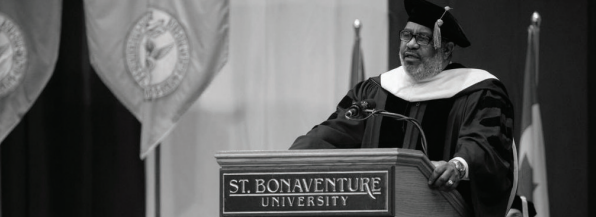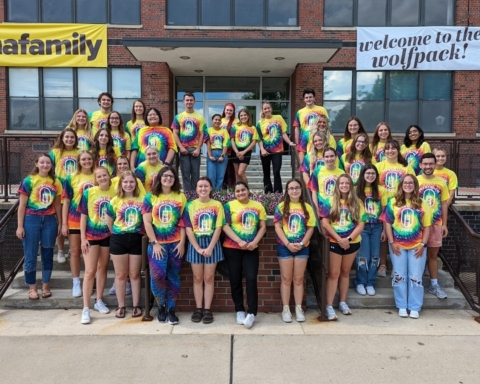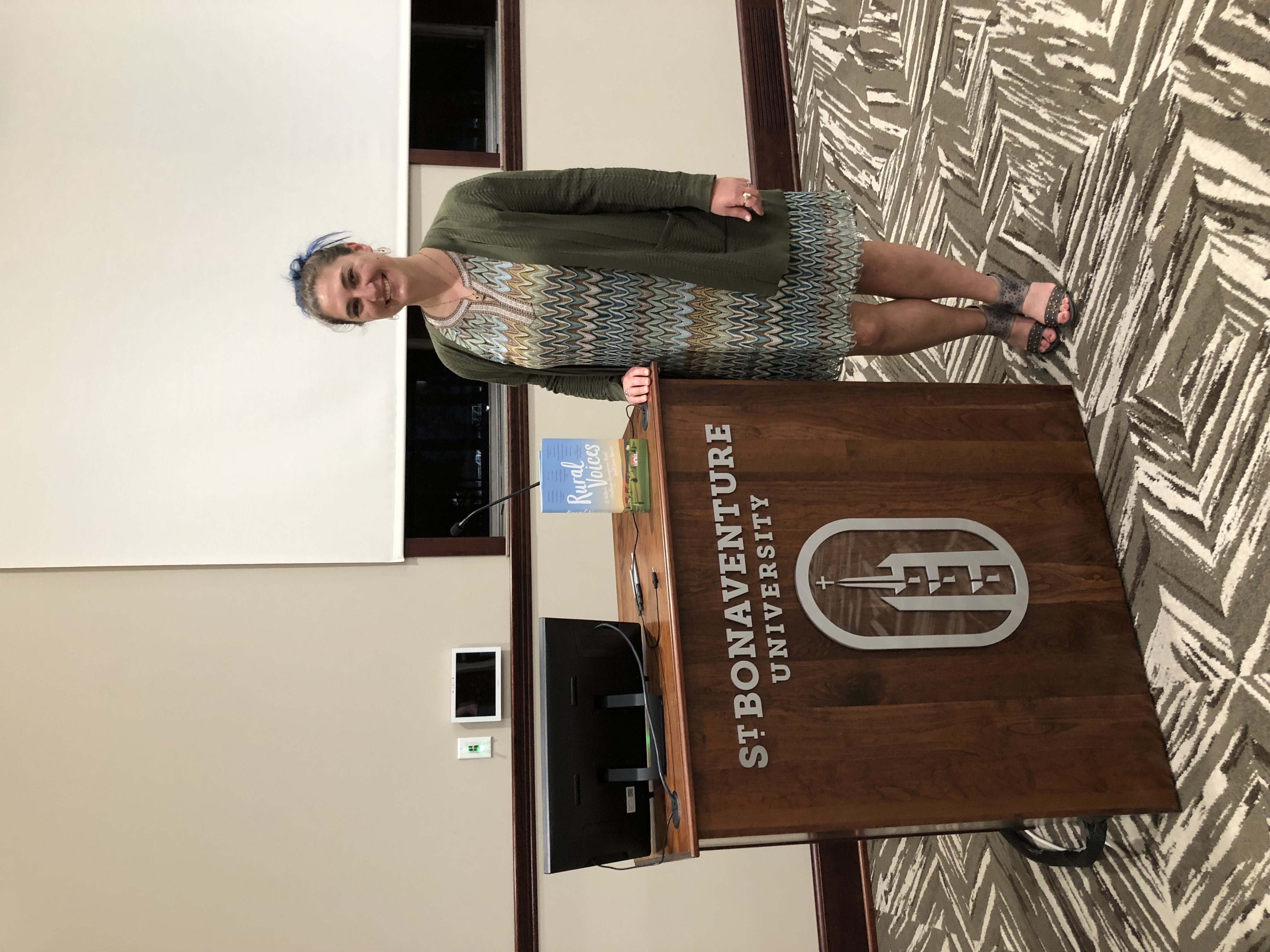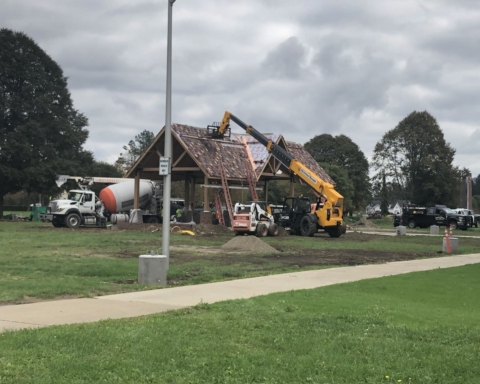By Tucker Reilly, News Assignment Editor
The All Bonaventure Reads (ABR) program at St. Bonaventure University is a yearly project – originally started in 2006 – given to incoming freshmen, in which each student is given the same book to read and write on before hearing the author speak later in the semester.
Sarah Barnard, the assistant director of the university’s Student Success Center, described the impact that the ABR program has on incoming students, offering a shared experience for students on their first days of class.
“The way [the program] works is we hand out books to students during orientation, and have them read and complete a writing assignment over the summer,” said Barnard. “This is usually very helpful in making sure all freshmen are on the same page coming in, and it works in harmony with the required SBU-101 classes they take.”
The importance of preparing students for SBU-101 is also central to Chris Brown, executive director of the university’s Student Success Center.
“One of our key determinants in choosing a book each year is how well it corresponds with the course objectives of the SBU-101 class,” said Brown. “What does a community look like when it’s healthy? What does a community look like when it’s unhealthy and how do we assess that?”
Due to COVID-19, Bonaventure’s class of 2024 were not able to attend the usual orientation events held in the summer, forcing the ABR committee to change their strategy for 2020.
“Because we weren’t able to hold normal orientation events this school year due to COVID-19, we gave students their books at the beginning of the fall semester but still assigned a writing piece,” said Barnard. “The idea was to get students thinking about the core themes of the book without having to read it, as a kind of intro piece.”
An additional benefit of the ABR program is the ability to hear authors speak at the “ABR Keynote” event held each October, something that the current freshman class experienced through a Zoom call this year. Author Austin Channing Brown joined freshmen in a discussion of her book “I’m Still Here: Black Dignity in a World Made for Whiteness” on Oct. 28 via Zoom seminar.
For Brown, while having an author that can come to the university and speak is a “bonus” in the selection process, the experience of these keynote speeches remains invaluable to freshmen. Even if it is over Zoom, the ABR committee works to make sure that either the author or someone who has experience in the realm of the book can speak.
“We’ve only had one time since the program’s founding that we didn’t have an author: [Brian Stevenson] for the book ‘Just Mercy’ [in 2015],” said Brown.
“In that case, we invited Anthony Ray Hinton, one of Stevenson’s clients who had formerly been on death row for over 30 years, so there was a deep personal connection with the themes and people involved in the book. Four years later, the students from that class wrote a petition to have Hinton be our graduation speaker and he received an honorary degree from Bonaventure. I loved that moment.”
Next year’s selection for ABR brings several questions to the table, specifically concerning COVID-19 and the university’s choice of when to give students their books. Brown said the committee has been polling faculty on different methods of introducing the book, and expressed surprise over how many members preferred the new structure.
“The new format actually got some traction among instructors, who liked being able to teach the book while students were reading it,” said Brown. “We would have never even thought to explore that without the restrictions of COVID-19, but now it’s a question of ‘should we intentionally embed the book into SBU-101’s course materials?’”
While the selection process for 2021 is still ongoing, the criteria for books remains the same as in prior years: the book must be “current” (within the last five years), “captivating,” “short” (a maximum 350 pages) and “related to SBU 101 course outcomes.”
“I love the ABR program because of the impact it has on incoming freshmen and the Bonaventure community as a whole,” said Barnard. “We see local book clubs and Bonaventure families that read along with us, discuss the same ideas we’re discussing and that’s irreplaceable.”
reillyt19@bonaventure.edu









